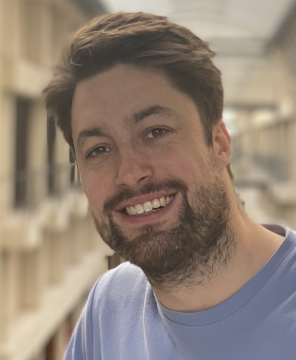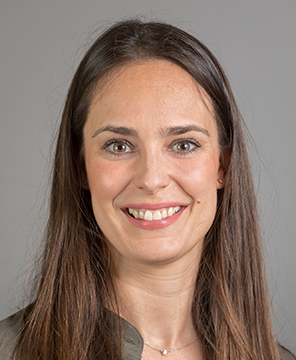ECCO Grant Study Synopsis: Joep van Oostrom and Krisztina B. Gecse
Joep van Oostrom, ECCO Grant Awardee
A prospective, open-label pilot study to evaluate effector mechanisms of hyperbaric oxygen therapy in patients with moderate to severe Ulcerative Colitis: the PARADOX study (exPlanAtoRy mechanisms in pAtients with moDerate-to-severe ulcerative colitis treated with hyperbaric OXygen therapy)
 Joep van Oostrom © Joep van Oostrom |
 Krisztina B. Gecse © ECCO |
Background & aim of research
Despite the increase in treatment options, there is still a group of Ulcerative Colitis (UC) patients who do not respond to drug treatment and ultimately require proctocolectomy. Recently, hyperbaric oxygen therapy (HBOT) was shown to be effective in difficult-to-treat UC patients, with a benefit apparent after only a few days of treatment. However, the effector mechanisms and dose–response relationships remain unclear. Therefore, we aim to discover the effector mechanisms of HBOT in UC patients and the dose–response relationships.
Methodology/experiments that will be used
To assess the dose–response relationships, eight patients with moderate-to-severe therapy-refractory UC who are undergoing ten HBOT sessions will be recruited. Response will be assessed at week 12. If this cohort does not achieve response, another cohort of eight patients undergoing 20 HBOT sessions will be recruited. If this cohort does not achieve response, another cohort of eight patients undergoing 30 sessions will be recruited. We will assess effector mechanisms through intestinal healing (assessed by intestinal blood flow, oedema, and clinical, endoscopic, histological and ultrasonographic disease activity), immunological and regenerative pathways (with special regard to hypoxia-inducible factor-related pathways, analysed by serum methylome assessment, mucosal CyTOF and single-cell RNA sequencing), intestinal barrier integrity and intestinal microbiome changes.
Anticipated main impact
If we can prove HBOT to be effective for therapy-refractory UC, proctocolectomy could be avoided and patients’ lives improved. Mechanistically, HBOT has great potential since it probably affects multiple pathways important to UC. However, the effector mechanisms have never been investigated in UC patients to this extent. Understanding these could aid in optimising HBOT in UC and potentiating existing and novel therapies.
Proposed timeline
September 2022: Recruitment of first cohort
February 2023: Evaluation of HBOT effectiveness in first cohort
March 2023: Recruitment of second cohort*
August 2023: Evaluation of HBOT effectiveness in second cohort
September 2023: Recruitment of third cohort*
February 2023: Evaluation of HBOT effectiveness in third cohort
• Four months after achievement of response: completion of translational analyses
• Two months after completing analyses: paper submission
*If previous cohort does not achieve response